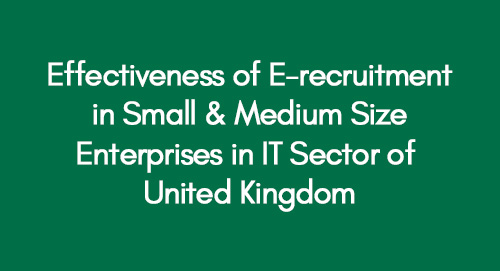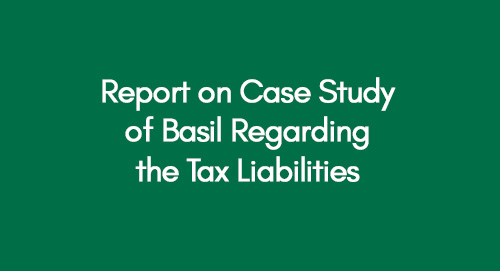
Effectiveness of E-recruitment in Small & Medium Size Enterprises in IT Sector of United Kingdom
January 15, 2021
Marketing Innovation At Huel
January 16, 2021Introduction
This case study is going to provide answers to the Basil Hilton case study questions regarding tax liabilities based on whether Basil’s investment in the hotel can be considered an investment and redevelopment of a family-run hotel. Further to that, the investor does not intend to operate under a limited company rather be a sole trader. The main focus of this study is based upon taxation rules by using different ways and methods under various circumstances.
As such, some important points which have been covered are the treatment of hotel profits as trading income of Basil, expenditure on the hotel property, income tax and capital gains tax, payments of wages to Basil’s wife (Sybil) and their children, payments to the full-time chef who Basil liked to be treated as self-employed. Eventually, the study is trying to explain some important areas in taxation namely; trading tax, income tax and capital gain tax. The answers to the case study questions are given below based on supportive literature.
Answer to Case Study Question 1
The HMRC will treat the profit derived from this asset as trading profits as per the Income Tax Act 2005 (Gov.uk, 2005). the profits derived from a rented property which is serving regular meals, housekeeping and laundry services is being categorized as trading income rather than rental income. Under the (Trading and Other Income) Act 2005, HMRC will tax the profits derived from the assets and treat it as a trading income since, Basil is not going to operate as a limited company, instead, their intention is to use the venture as family-owned and run hotel. Consequently, Basil will also share the responsibilities of being full-time employer in his hotel, handling the management work in terms of bookings and hotel management, accounting and legal issues.
On the other hand, his wife Sybil will help him in running the day to day operation of the restaurant by assuming certain responsibilities such as be hiring and firing casual staff for cleaning, catering and leisure activities. Basil will also appoint a full-time chef, while his children will give him a hand to manage the hotel towards the cleaners, waiting, staff and kitchen staff. Despite Basil and his family will use part of the premises as an accommodation to live in, the profits arising from the asset will still be regarded as trading income rather than rental income (Moore & Media, 2016).
Answer to Case Study Question 2
In this case, there has been expenditure on the purchase, refurbishment, refitting and equipment for the new hotel, and whether the expenditure is to be considered for income tax or capital gains tax is likely to affect the income tax liability. It is important to identify the difference between the treatments of different expenditures so that it can help Basil in his income tax planning and tax benefits he can avail.
The expenditure which Basil made on the purchase could either be treated for income tax or capital gains tax purposes. The expenditure which is incurred on capital gains is to be treated for capital gain tax (CGT) purposes rather than income tax purposes. The nature of the expenditure (capital or revenue expenditure) determines if it is to be treated for the CGT or income tax purposes (ACCA, 2015). The revenue expenditure is expenditure on an asset, the benefit of which is to be consumed within a year. However, a capital expenditure is expenditure on an asset, the benefit of which is to be last more than a year.
Let consider the expenditure on the purchase of the property in the Basil case. The expenditure on the purchase of hotel property was a capital expenditure because the benefit of it is to last for many years. Therefore it would be wrong to deduct the expenditure from the income tax liability of Basil. Rather it is to be treated for the CGT purposes however the CGT will be applicable at the time when the property will be sold. Therefore the expenditure on the purchase of the new hotel is to be considered for capital gains tax.
However, the expenditure on the refurbishment of the property may amount to capital or revenue expenditure and hence may qualify for treatment as CGT or income tax purposes. If the refurbishment expenditure only includes the reparation of the existing property then it would be considered as revenue expenditure and hence would be treated for the income tax deductions (ACCA, 2015). However, if the refurbishment expenditure would result in improvement of the existing property then it would be considered as capital expenditure, and hence would be treated for the CGT purposes (ACCA, 2015).
Similarly based on the aforementioned specification of revenue and capital expenditures the expenditure on refitting and equipment for the new hotel would amount to capital expenditure as it would amount to increasing the existing property and the benefit of these expenditures would be realized in more than just one year. Therefore expenditure on refitting and equipment for the new hotel would be treated for CGT purposes and not income tax purposes. (ACCA, 2015).
Answer to Case Study Question 3
According to HM Revenue and Customs when a business such as a private hotel is owned and managed by one spouse and the second spouse works there then the wages the second spouse gets will be treated as income of the second spouse as an employee of the hotel and the wages would be subjected to income tax for the second spouse (Which.co.uk, 2015). This is the situation in the case study of Basil, who owned and managed the private hotel and his wife Sybil works there as an employee, therefore the payments of wages to Sybil would be deducted as expenses from the taxable income of the hotel. Similarly, the payment given as wages to their children would also be deductible from the taxable income of the hotel (Gov.uk, 2005).
However, on the basis of certain criteria, it is possible to identify if the use of hotel facilities and the private residence by the family members of Basil would be entitled to any income tax relief. To be entitled to the income tax relief it is necessary that the property is the main and only residence, such that Basil would not have been living in another accommodation (Moore & Media, 2016). Moreover, any part of the property should not have been used for business purposes (Tiley & Loutzenhiser, 2012).
As in the situation of Basil, the property has been used for business purposes therefore it would not be entitled to the income tax relief for the use of hotel facilities and the private residence by the family members. The Private Residence Relief would not be allowed to Basil as he and his family acquires the hotel. And at the time of its sales, the property would be liable to capital gain tax (Moore & Media, 2016).
Answer to Case Study Question 4
Basil would not like the full-time chef to be treated as being self-employed because by treating the chef as self-employed Basil could save the benefits by not keeping the chef on the payroll of the hotel (ACCA, 2015). However, if Basil treats the chef as being self-employed then the tax reliefs which he could get regarding income expenses of the chef would not be allowed to him. Moreover, Basil may have to maintain a tax record for the full-time employee. Nevertheless, in this case, the HMRC would not likely accept this treatment because of the fact that the chef was hired on a full-time basis and so treating him as self-employed would not be the correct treatment for tax purposes.
Conclusion
Based on this report the tax treatment of the hotel’s profits and the wages of Basil’s wife and children have been identified. Based on the fact provided in the case study it has been identified that the hotel’s profit is likely to be treated by the HM Revenue and Customs as trading income of Basil rather than the rental income. Regarding the treatment of expenditures on the purchase, refurbishment, refitting and equipment it was determined that expenditure on the purchase of the new hotel, refitting and equipment is to be considered for capital gains tax and not the income tax purposes as they amount to capital expenditures.
However, the refurbishment expenditure is to be treated for income tax purposes if it amounts to revenue expenditure, while if it amounts to capital expenditure then it is to be treated for CGT purposes. Moreover, regarding the treatment of the wages to Sybil and the children, it was found that they are to be considered for income tax purposes and so are deductible from the taxable income of the hotel. However, the treatment of the chef as self-employed by Basil would not be allowed by the HM Revenue and Customs as the chef was hired on a full-time basis.
References
Gov.uk (2005). Legislation Income Tax (Trading and Other Income) Act 2005. http://www.legislation.gov.uk/ukpga/2005/5/contents
Which.co.uk (2016). Tax on Property and Rental Income. http://www.which.co.uk/money/tax/guides/tax-on-property-and-rental-income/how-rental-income-is-taxed/
ACCA. (2015). ACCA F6 Taxation UK (FA 2014). InterActive World Wide Limited.
Moore, J., & Media, D. (2016). Tax Benefits for a Husband-and-Wife-Owned Business. Hearst Newspapers, LLC. http://smallbusiness.chron.com/tax-benefits-husbandandwifeowned-business-22705.html
James, M. (2009). The UK Tax System: An Introduction. Spiramus Press Ltd.
Tiley, J., & Loutzenhiser, G. (2012). Revenue Law: Introduction to UK Tax Law; Income Tax; Capital Gains Tax; Inheritance Tax. Bloomsbury Publishing.
Get 3+ Free Dissertation Topics within 24 hours?


















 Download PDF File
Download PDF File







